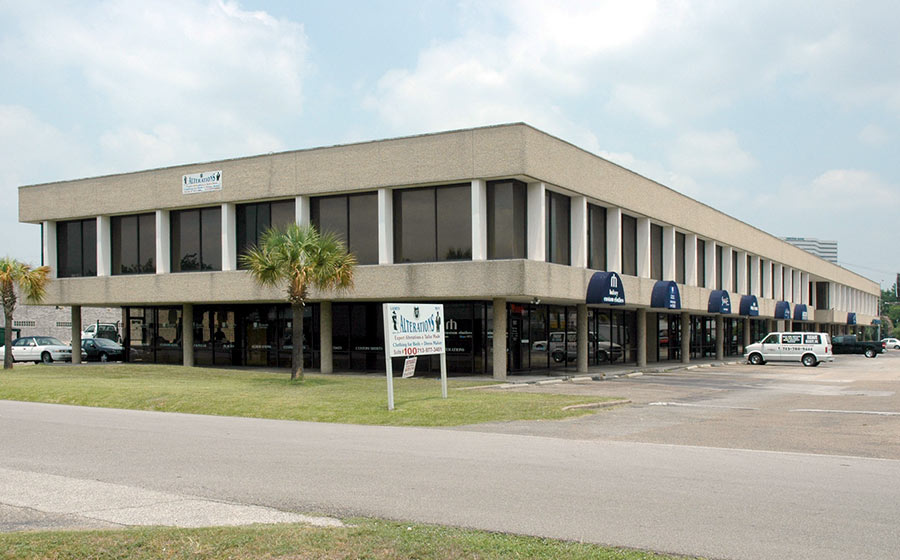PROPERTY OWNERS, NOT DEVELOPERS, PAYING FOR NEW CITY DRAINAGE PROGRAM SO FAR Although it’s been collecting drainage fees from property owners for a year, the city of Houston still has yet to begin collecting a parallel funding source for its new ReBuild Houston infrastructure program. A deputy director of public works admitted in a meeting last week that a promised developer impact fee — one of 4 sources of funding established for street and drainage improvements — has not yet been put in place. Fees from developers are meant to pay for measures that would offset the effects of future development on flooding and street capacity, according to a city website describing the program. [The Leader]




Quelle surprise!
Don’t blame me, I didn’t vote for her…
Any new developments have to meet requirements for detention and drainage in the first place (unless it was wall to wall pavement to begin with)and have to be designed with the impacts of the development in mind. An additional fee is bogus to begin with. Once the development is completed they’ll get bills for drainage fees anyway, just like all existing developments.
Gee, what a surprise! The city makes property owners pay the TAX and overlooks the developers. You would think the city has more money than they know what to do with.
Terrific….thanks COH…
This just one more example of what has been going on in Houston for decades. The developers control city hall.
What do you think MUD taxes are for? The Developer sells bonds to pay for all that infrastructure and passes it on to the lot buyers. Sweet deal. Regards Eric S.
Bubba,
You have got to be kidding me. Have you tried developing in Houston lately? Yes, that’s a rhetorical question. As a developer, I can assure you that we do not run this city.
Eric S – Yes the MUD bonds reimburse the Developer – after they carry those costs for 2, 3 or 4 years. It is one of the reasons that home prices are what they are here. If the utility costs had to be covered in the lot sale price, your house (or apartment costs) would be more $15,000 to $20,000 per lot.
Not sure if anyone is still reading this thread, but here’s my two cents worth. As a small scale home builder in Houston, I’ve had some first hand experience with this. I recently obtained permits on my project – just 2 single family homes in the Heights area and, let me tell you, I would’ve actually preferred to just pay an additional drainage impact fee rather than having to go through what I just went through to get those permits. Basically, I think the city is trying to push through a wave of new storm water related requirements as a way of offsetting their costs of capital improvement onto developers. It’s really something called “exaction,” and would ostensibly remain in place in addition to any proposed impact fees.
Our original plan was to install catch basins on the property to direct storm water through buried PVC pipes to the road side ditch as there are no curbs along this street, just ditches. This is something that is commonly done by many, many other builders in the area. However, the city now claims that this constitutes an attempt to install storm sewer piping in the city right of way. As a result, they required that I install a device called a storm sewer restrictor in a 24″ diam. pipe from 4′ INSIDE the property line all the way out to the ditch. By way of documenting the details required, they gave me a photocopy of a city storm sewer manhole construction detail that is completely un-releated to my site conditions. I researched this device and found that it is used to connect city storm sewer inlets or man holes to the main sewage lines. These demands are pretty excessive and are incoherently stated. It was not clear what they are even asking for and I’m not sure that the plan reviewer knew either. He was basically just passing along something his superior told him in a meeting to ask for. He even told me that “you don’t really need this on your project. The city wants you to put it in for their own future use.” Rather than spending the next few months slowly going out of business trying to comply with these puzzling demands, I removed all references to subsurface drainage and finally got approval this way.
That was actually just one of the new requirements that the city was asking for. There’s no room in this blog for a full accounting. If uniform rules and clarity are not brought to bear on these new plan review requirements, any additional drainage impact fee would just be adding insult to injury. All of this, if it continues, would undoubtedly erode the low cost of housing that Houston enjoys partly as a result of its historically light touch on development regulations. I agree that proper storm drainage is important issue in Houston but the city needs to have a plan and do this the right way instead of having plan review requiring developers to do it for individual projects willy-nilly.
To the developers: having worked at the COH I saw first hand who runs this city and it’s NOT the citizens. Citizens are forced to deal with your wants and whims and quite honestly I am getting sick of it. You can whine all you want about new regulations but you won’t get any sympathy from me!
I want My City Back,
So, you are telling me it’s reasonable for one city inspector to approve something and another one, just a day or two later, to override him and make us change things? Or, how about the fire marshal inspector coming out and launching all sorts of new requirements that go beyond the plans they signed off on originally Does that sound like the way a developer would want to run the city?
The bigger the city gets the dumber the bureaucratic system becomes. In the end half the ordinances read like “by approval of the city engineer”, a position I’ve come to find is more political than actually engineering related. Developers who do alot of work with the city will get a pass while developers like the one above get the run around frOm a system too overloaded to be fair and logical.